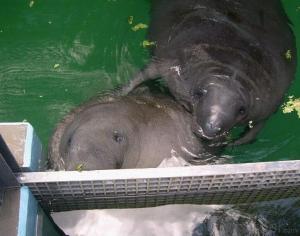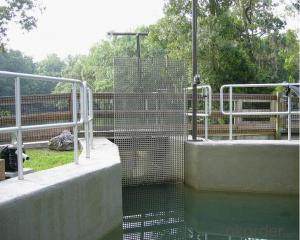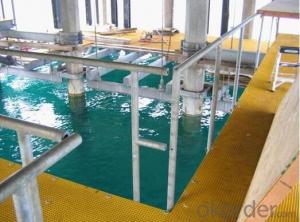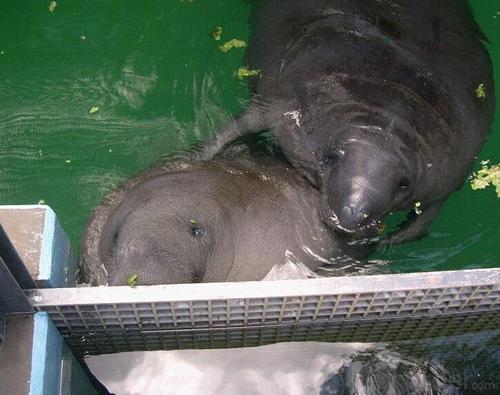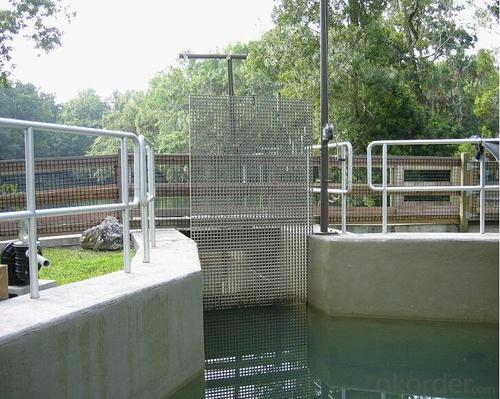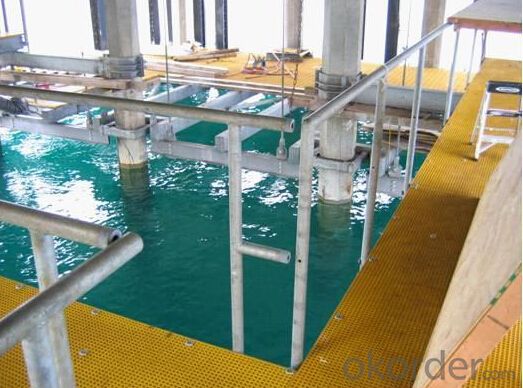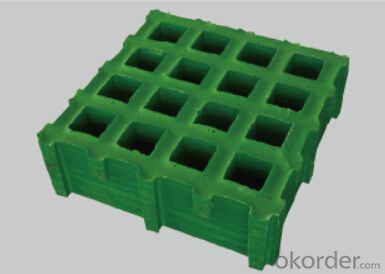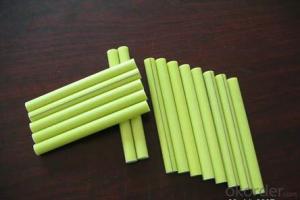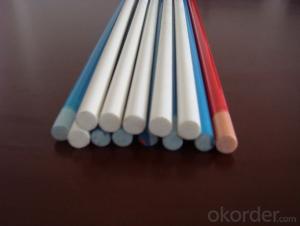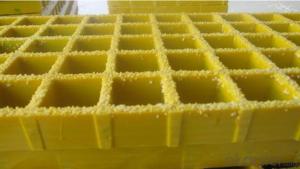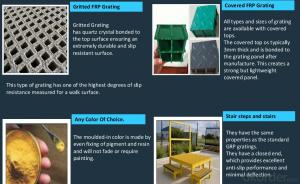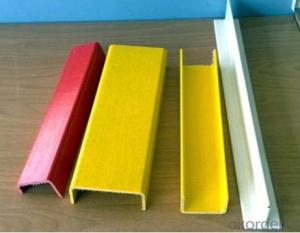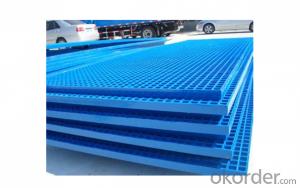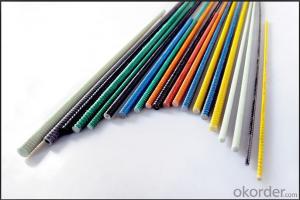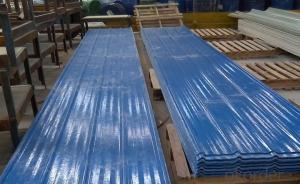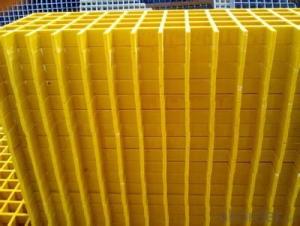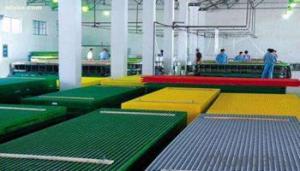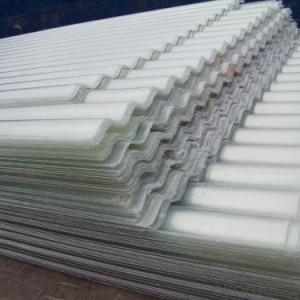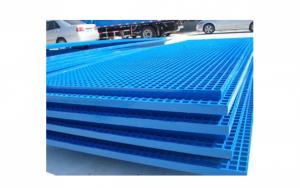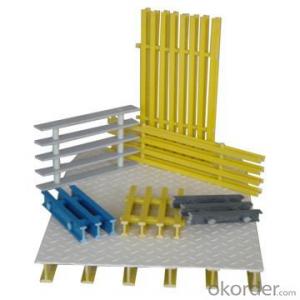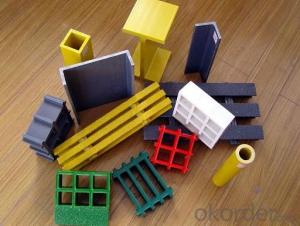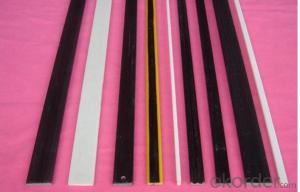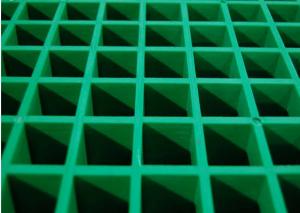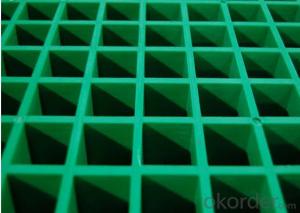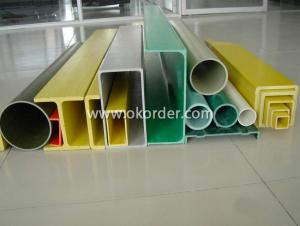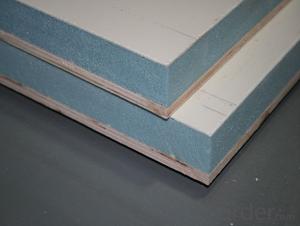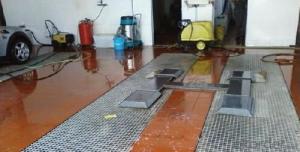FRP Pultrusion Profiles - High Bear Strength Anti-Corrosion Pultruded Fiberglass FRP GRP Gratings
- Loading Port:
- Shanghai
- Payment Terms:
- TT OR LC
- Min Order Qty:
- 10 pc
- Supply Capability:
- 8000 pc/month
OKorder Service Pledge
OKorder Financial Service
You Might Also Like
Specification:
FRP molded grating made of vertical and horizontal continuous fiberglass fully soaked in unsaturated polyester resin giving perfect bi-directional mechanical properties. Combining unmatched corrosion resistance with strength, long life and safety, molded grating provide the ultimate in reliable performance, even in the most demanding corrosive conditions. Besides, it is easy to cut and install. CNBM offer the widest selection with panel sizes, colors and slip resistant surfaces, clients can avail FRP grating your specific requirements.
Product Features:
- Light but high loaded strength
- High anti-corrosion and anti-aging
- Easy installation and maintenance
- Low maintenance
- Non-conductive
- Lowest in life cycle cost
- Corrosion Resstance
- Anti-slippery
- Various sizes and color available
Colour Design:
To satisfy customer's design project, CNBM grating offers a wide selection of grating colors to choose from. The standard colors available for fiberglass grating as following:
- Blue
- Red
- Yellow
- Green
- Light Grey
- Dark Grey
Custom colors of fiberglass grating may be available upon request, you can contact us learn more.
Moded Grating Sizes List:
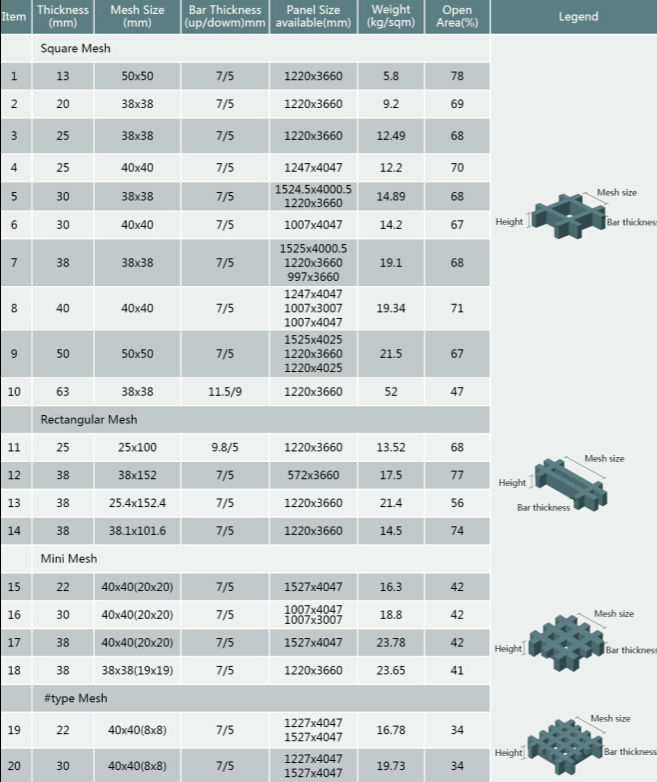
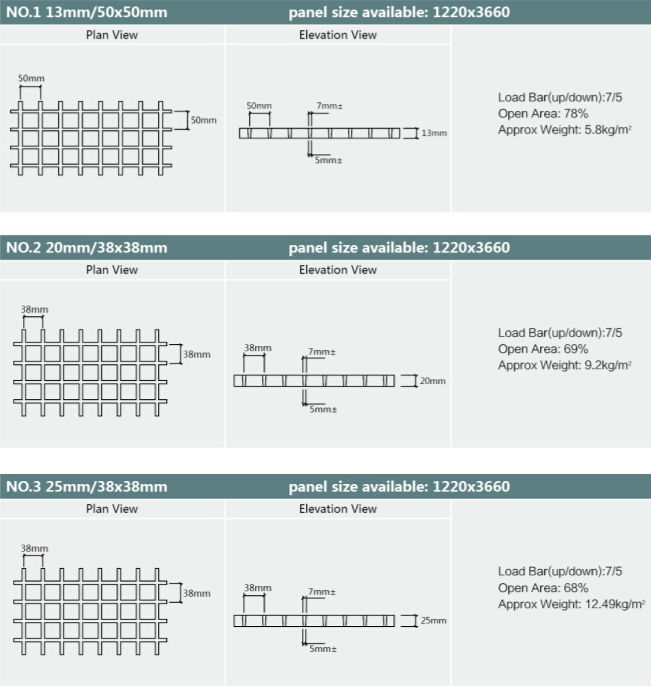
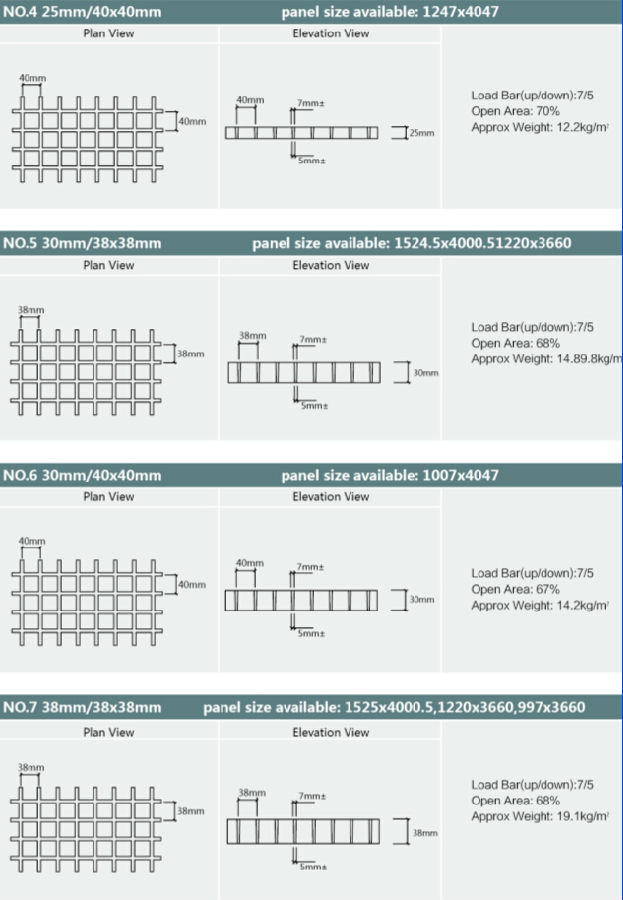
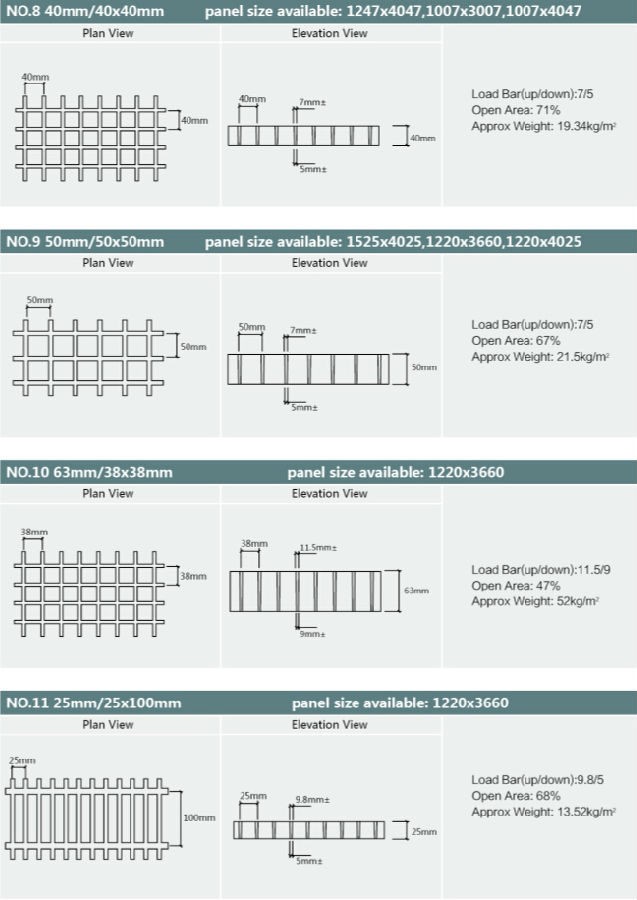
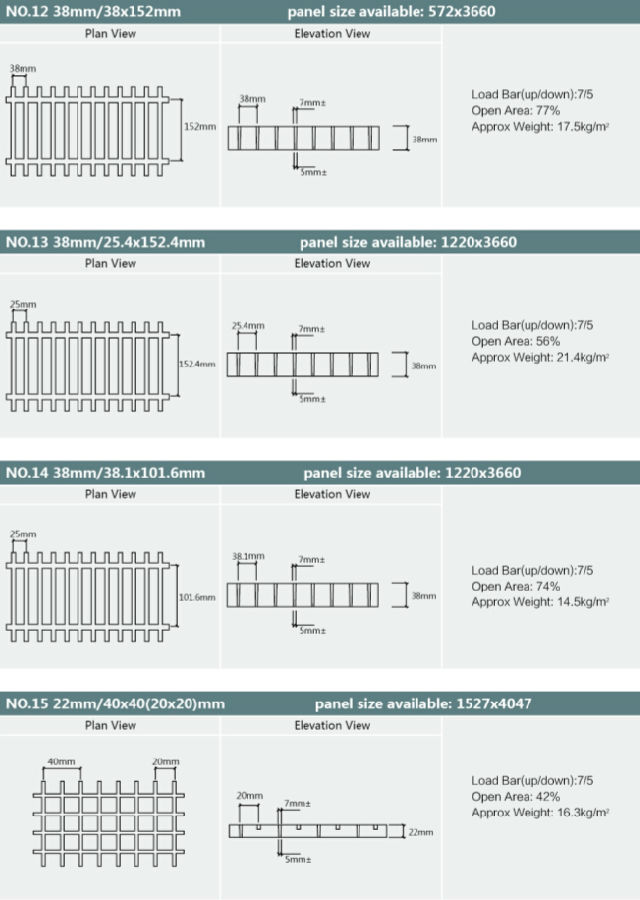
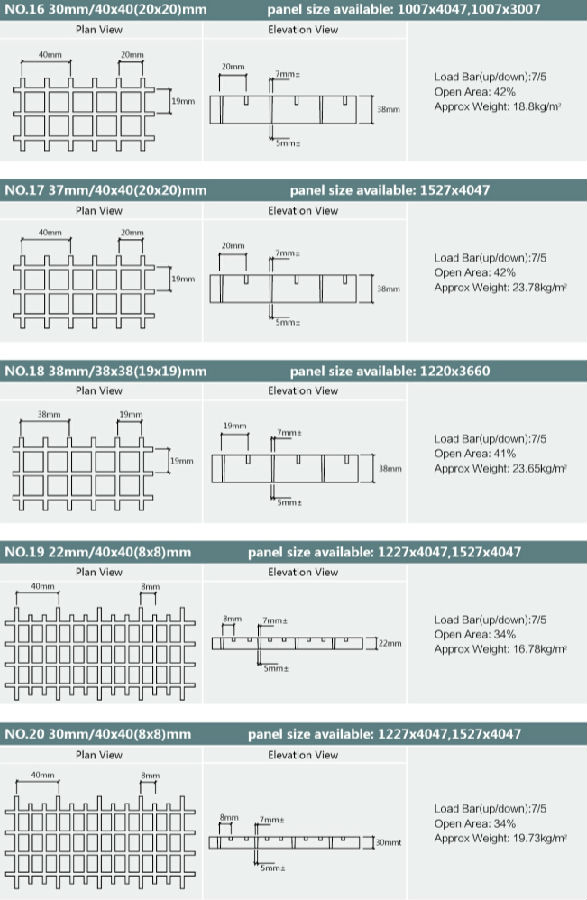
- Q: Are FRP pultrusion profiles resistant to chemicals used in pharmaceutical manufacturing?
- FRP pultrusion profiles are well-known for their resistance to chemicals utilized in the pharmaceutical manufacturing industry. These profiles are created by saturating fibers with a resin matrix, typically polyester or vinyl ester. This resin matrix offers exceptional chemical resistance, allowing the profiles to endure exposure to a wide variety of chemicals, including acids, alkalis, solvents, and cleaning agents frequently employed in pharmaceutical manufacturing procedures. Due to the combination of fiber reinforcement and a chemical-resistant resin matrix, FRP pultrusion profiles are an excellent option for applications that involve contact with aggressive chemicals. Unlike traditional materials such as steel or wood, FRP profiles do not corrode or undergo chemical reactions when in contact with substances. Moreover, FRP pultrusion profiles provide numerous additional benefits for pharmaceutical manufacturing applications. They possess a remarkable strength-to-weight ratio, are non-conductive, and exhibit high mechanical resistance. Furthermore, FRP is a non-porous material, preventing the absorption or release of chemicals. This characteristic is crucial for maintaining strict hygiene standards and preventing contamination in pharmaceutical processes. In conclusion, FRP pultrusion profiles are a dependable and long-lasting choice for pharmaceutical manufacturing environments, offering excellent resistance to the chemicals typically encountered in these processes.
- Q: Are FRP pultrusion profiles resistant to biological growth, such as mold or mildew?
- Yes, FRP (Fiber Reinforced Polymer) pultrusion profiles are highly resistant to biological growth, including mold and mildew. FRP materials are inherently non-porous, making it difficult for microorganisms to attach and grow on their surface. Additionally, FRP pultrusion profiles are typically manufactured using a combination of resin and glass fibers, which are both naturally resistant to biological growth. Unlike traditional materials such as wood or metal, FRP does not provide an ideal environment for mold or mildew to thrive. The smooth and non-porous surface of FRP profiles prevents moisture absorption, which is essential for the growth of microorganisms. Furthermore, FRP materials do not contain organic compounds that can support the growth of mold or mildew, making them highly resistant to biological degradation. In applications where resistance to biological growth is crucial, FRP pultrusion profiles offer a significant advantage over alternative materials. They are commonly used in environments with high humidity, moisture, or exposure to water, such as marine, agricultural, or wastewater treatment facilities. Additionally, FRP profiles are frequently employed in indoor applications where mold or mildew growth can be a concern, such as in sanitary areas or food processing plants. Overall, FRP pultrusion profiles provide excellent resistance to biological growth, including mold and mildew. Their non-porous nature, combined with the inherent resistance of the materials used in their manufacturing, make them a durable and long-lasting solution in environments where microbial growth is a potential issue.
- Q: How do FRP pultrusion profiles compare to steel or aluminum profiles?
- FRP (Fiber Reinforced Polymer) pultrusion profiles offer several advantages over steel or aluminum profiles. Firstly, FRP profiles are extremely lightweight, making them easier to handle and install. This is particularly beneficial in industries where weight reduction is crucial, such as aerospace or automotive applications. Another significant advantage of FRP pultrusion profiles is their exceptional corrosion resistance. Unlike steel or aluminum, FRP does not rust or corrode when exposed to moisture, chemicals, or harsh environmental conditions. This property makes FRP profiles ideal for applications in marine environments or chemical processing plants, where traditional materials would quickly deteriorate. In terms of strength, FRP pultrusion profiles can match or even surpass steel or aluminum profiles. The unique combination of reinforcing fibers and polymer resin in FRP provides excellent tensile and flexural strength. Additionally, FRP profiles have a high stiffness-to-weight ratio, meaning they can withstand heavy loads while remaining lightweight. Furthermore, FRP pultrusion profiles offer excellent electrical insulation properties. Unlike metal profiles, FRP does not conduct electricity, making it a safe choice for electrical applications where insulation is crucial. While steel or aluminum profiles may have their own advantages in certain applications, FRP pultrusion profiles often provide a more cost-effective solution due to their long lifespan and low maintenance requirements. FRP profiles are not susceptible to rust, corrosion, or degradation, minimizing the need for frequent repairs or replacements. Overall, FRP pultrusion profiles offer a compelling alternative to steel or aluminum profiles, providing lightweight, corrosion-resistant, strong, and electrically insulating solutions for various industries and applications.
- Q: Can FRP pultrusion profiles be used in the construction of pedestrian tunnels?
- Yes, FRP (Fiber Reinforced Polymer) pultrusion profiles can be used in the construction of pedestrian tunnels. FRP profiles offer several advantages such as high strength-to-weight ratio, corrosion resistance, and durability, making them suitable for tunnel construction. Additionally, FRP profiles can be easily customized to meet specific design requirements and offer long-term cost savings due to their low maintenance needs.
- Q: Are FRP pultrusion profiles resistant to caustic solutions?
- Yes, FRP (Fiber Reinforced Polymer) pultrusion profiles are generally resistant to caustic solutions. The combination of the reinforcing fibers and the polymer matrix used in FRP pultrusion provide excellent chemical resistance. Caustic solutions, such as strong alkaline substances, can often corrode or degrade traditional materials like steel or wood. However, FRP pultrusion profiles are highly resistant to chemical attack, making them suitable for applications where exposure to caustic solutions is common. This resistance makes FRP pultrusion profiles an ideal choice for industries such as chemical processing, wastewater treatment, and marine environments where corrosive substances are present. Nonetheless, it is important to consult the manufacturer's specifications and guidelines to ensure that specific caustic solutions are compatible with the particular FRP pultrusion profile being used.
- Q: Are FRP pultrusion profiles resistant to termites or other pests?
- Yes, FRP (Fiber Reinforced Polymer) pultrusion profiles are highly resistant to termites and other pests. The composition of FRP, which includes resin and glass fibers, makes it an inhospitable material for pests. Unlike wood, FRP does not provide a food source or favorable conditions for termites or other pests to thrive. Therefore, FRP pultrusion profiles are an excellent choice for applications where resistance to pests is required.
- Q: Are FRP pultrusion profiles resistant to wear or abrasion?
- Yes, FRP pultrusion profiles are highly resistant to wear and abrasion. The combination of strong reinforcing fibers and a durable resin matrix makes them capable of withstanding harsh conditions and maintaining their structural integrity over time, even in high-stress environments. This resistance to wear and abrasion makes FRP pultrusion profiles an excellent choice for applications that require long-lasting and low-maintenance solutions.
- Q: Are FRP pultrusion profiles resistant to corrosion and chemicals?
- Yes, FRP (Fiber Reinforced Polymer) pultrusion profiles are highly resistant to corrosion and chemicals. FRP is composed of a combination of reinforcing fibers, such as fiberglass, and a polymer resin matrix. This unique composition provides excellent resistance to a wide range of corrosive environments and chemicals. FRP pultrusion profiles have inherent corrosion resistance due to the absence of metal components. Unlike metals that can corrode when exposed to moisture, oxygen, or certain chemicals, FRP does not rust or deteriorate. This makes FRP pultrusion profiles an ideal choice for applications in industries such as chemical processing, wastewater treatment, marine, and oil and gas. Furthermore, FRP pultrusion profiles are highly resistant to a variety of chemicals, including acids, alkalis, solvents, and salts. The polymer resin matrix used in FRP provides a protective barrier that prevents chemical penetration and degradation of the structural profile. This resistance to chemicals ensures that FRP pultrusion profiles can withstand harsh environments without suffering from corrosion or material degradation. In summary, FRP pultrusion profiles are indeed resistant to corrosion and chemicals. Their non-metallic composition and protective polymer resin matrix make them highly durable and suitable for a wide range of applications where corrosion and chemical resistance are crucial.
- Q: Can FRP pultrusion profiles be used in the construction of agricultural structures?
- Yes, FRP pultrusion profiles can be used in the construction of agricultural structures. FRP pultrusion profiles are lightweight, durable, and resistant to corrosion, making them suitable for various agricultural applications such as greenhouse framing, livestock enclosures, and storage sheds. They offer excellent strength-to-weight ratio and can withstand harsh environmental conditions, making them a reliable choice for agricultural construction.
- Q: Can FRP pultrusion profiles be used in the construction of pedestrian tunnels?
- Yes, FRP (Fiber Reinforced Polymer) pultrusion profiles can be used in the construction of pedestrian tunnels. FRP profiles offer several advantages such as high strength-to-weight ratio, corrosion resistance, and durability, making them suitable for tunnel construction. Additionally, FRP profiles can be easily customized to meet specific design requirements and offer long-term cost savings due to their low maintenance needs.
Send your message to us
FRP Pultrusion Profiles - High Bear Strength Anti-Corrosion Pultruded Fiberglass FRP GRP Gratings
- Loading Port:
- Shanghai
- Payment Terms:
- TT OR LC
- Min Order Qty:
- 10 pc
- Supply Capability:
- 8000 pc/month
OKorder Service Pledge
OKorder Financial Service
Similar products
Hot products
Hot Searches
Related keywords
